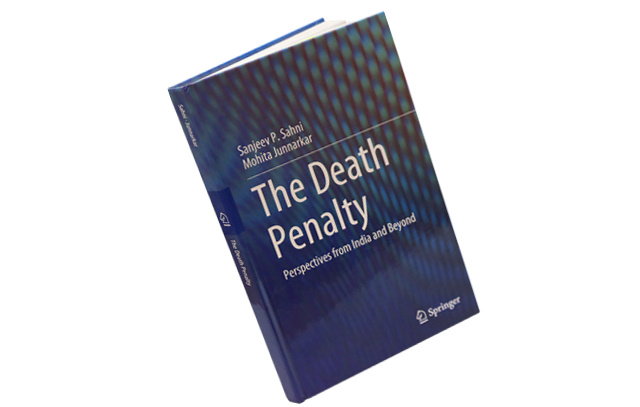The Death Penalty: Perspectives From India & Beyond
This book is an intrinsic piece of research on understanding the perspective of general public in India on ‘Death Penalty.’ Leading organizations like United Nations, Amnesty International are supporting the abolishment movement. Amnesty International reports that more than two- third of all countries in the world have abolished death penalty in law or in practice, although a few have subsequently reintroduced it. The parallel adoption and signature to international instrument on this subject pronounced that no one should be deprived of life.
Death penalty is retained for ‘rarest of the rare’ crime events in India. The provisions and codes to justify judicial executions dates back to ancient Indian literature like Kautilya Arthashatra. The book draws attention on crucial position of public of India on the issue of Death Penalty. It has been noticed worldwide that general public opinion differs from the worldwide movement favoring abolishment. In several countries, death penalty has been defended on grounds of public support. The book addresses the diverse sensitivities on death penalty through seven chapters citing the global context, Indian context, role of non-state actors, public opinion poll on death penalty, psychosocial factors affecting death penalty, Indian perception on death penalty and way forward. Each chapter critically reviews and draws conclusion on the topic addressed.
The present study was a public opinion poll of Indians with respect to death penalty. The main objective of the study was to understand their perception towards death penalty, reasons for support/opposition, type of crime for which death penalty is supported and demographic factors associated with public opinion on death penalty. About 25210 Indians participated in the current study. They were in the age group of 12-80 years (M Age = 29.76, SD = 12.63). Majority of the participants supported (80%) for death penalty primarily for crimes such as rape (77.7%) and murder (64%). Those favoring death penalty believed that it is proportionate to the wrong done (43.1%) and has a deterrence effect (39.1%) while those who opposed death penalty believed that it violates the right to life (54.1%) and is inhumane (47.4%). The results imply that public perception is in support of death penalty particularly when atrocious crimes are involved even though it is highly subjective. Some participants also believed that a systematic nature of death penalty may play a deterrent role, at least in some cases.
The book addresses the diverse sensitivities on death penalty through seven chapters citing the Global context, Indian context, role of non-state actors, public opinion poll on death penalty, psychosocial factors affecting death penalty, Indian perception on death penalty and way forward. Each chapter critically reviews and draws conclusion on the topic addressed.
